Advertisement
Coronavirus Coverage
Mass. State House Remains Closed, Even As Other Buildings Open
Resume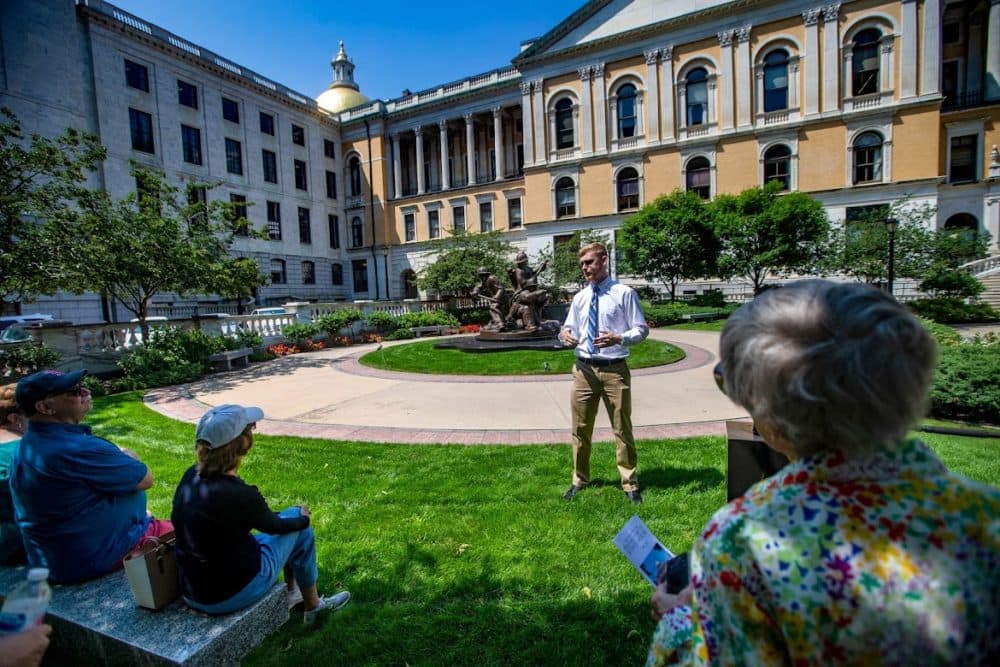
Alex Svenson led about a half-dozen tourists through the grounds surrounding the Massachusetts State House, pointing out highlights of the building's exterior and its manicured gardens.
Missing from the tour: all the wonders inside the capitol. That includes the famous Sacred Cod, the House and Senate chambers, the governor's office, as well as the cavernous Hall of Flags, where flags from all 351 cities and towns hang high above the marble floor.
While most cities and towns have lifted the pandemic restrictions on their libraries and other buildings, the State House likely won't reopen to the public for at least another couple months.
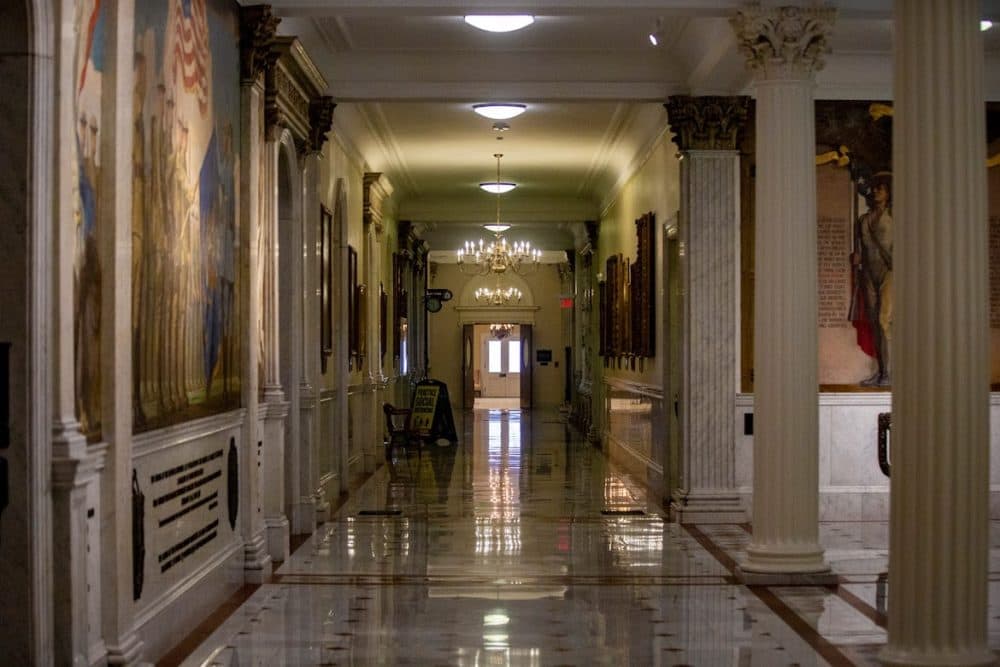
Secretary of State Bill Galvin, whose office oversees the building tours, is pushing lawmakers to end the 16-month closure more quickly, arguing that the structure could reopen with little risk to public health.
"This is a magnificent building," said Galvin during a recent news conference to announce his office would begin offering the outdoor tours. "We should be sharing it with our own citizens and with that of those from other parts of the country and indeed other parts of the world who come here."
Nearly 100,000 visitors toured the building in fiscal year 2019, before the pandemic. But now the corridors are largely empty.
Senate Majority Leader Cynthia Creem, who chairs the Senate working group on reopening the building, argues it's unwise to reopen the building right away.
"With the uptake of the delta virus, even in Massachusetts, with the uncertainty of the efficacy of some of the vaccines that people have had, we're trying to be cautious because we want to make it a safe place for our staff," said Creem said, a Newton Democrat.
Speaker of the House Ron Mariano and Senate President Karen Spilka will ultimately decide when to reopen the building. They've suggested that will likely happen around Oct. 1.
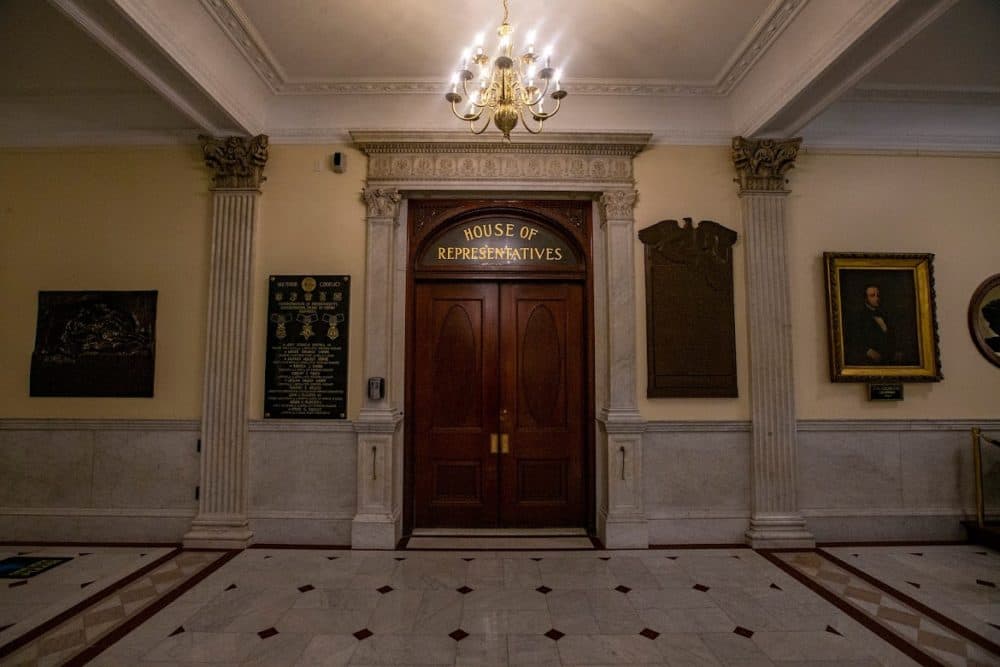
In the meantime, Creem says legislators have been able to give the public access to proceedings through meetings streamed online, making it even easier for many people to attend.
"I just see that as being a big advantage," Creem said. She said the virtual hearings allow people to save hours traveling to and from the State House.
But Arline Isaacson, who has worked as a lobbyist for several years, said the closure has made it harder to actually talk to politicians.
"We can't grab a legislator to talk to them for a few seconds," said Isaacson. "We can't run into somebody, a staffer or a legislator and have a conversation that goes, 'Oh, by the way, X, Y, Z just happened. Would you mind doing X, Y, B?' "
When to reopen isn't just a question for legislative leaders, but also for many businesses and other institutions that have been operating remotely for more than a year.
Many private universities in the Boston area have yet to reopen their public museums, even as they have used a combination of testing, masks and social distancing to reopen their classrooms.
The Bunker Hill Monument, with its narrow stairwell and limited ventilation, remains closed.
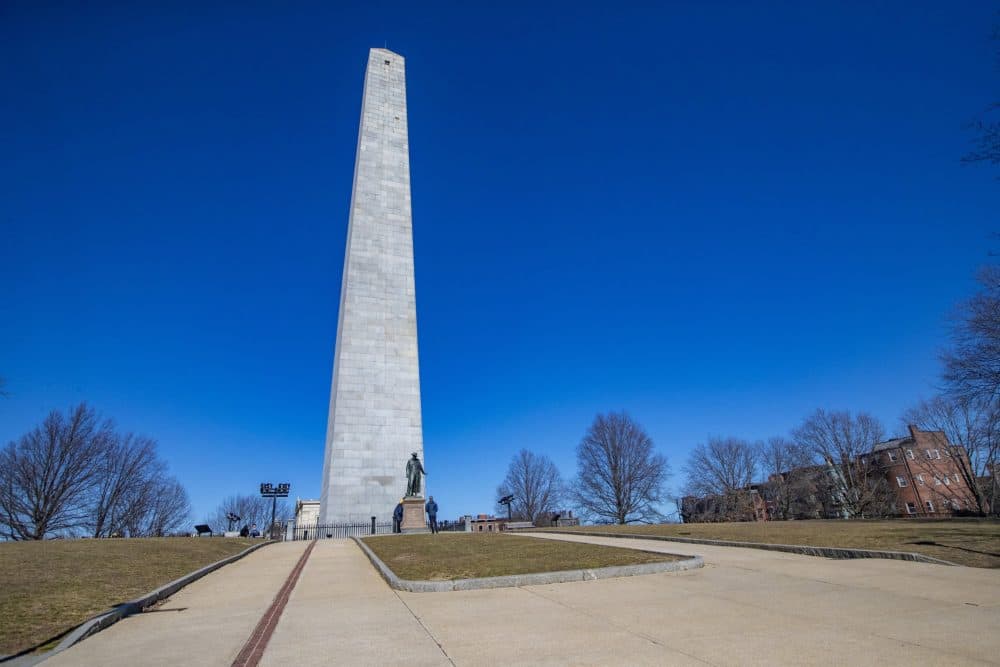
And employers across the region have gone through a complicated calculus on when to bring back their workers.
"The future of work is really important. And the sentiment of employees is critically important," said Julie Law, head of human resources at John Hancock, which employs about 3,000 people in New England.
John Hancock recently announced its employees can return to the office on a voluntary basis in mid-September.
"So our employees can test it out, start to feel more comfortable with working in a work environment from the September time period through the end of the year," said Law.
John Hancock says it won't require most workers to return to the office until January. And even then, the insurer will let many people continue to work from home a couple days a week.
Similarly, the Legislature may let many staffers continue to work remotely part of the time.
But at least until fall, tourists and local residents alike will have to remain content to view the State House from the outside.
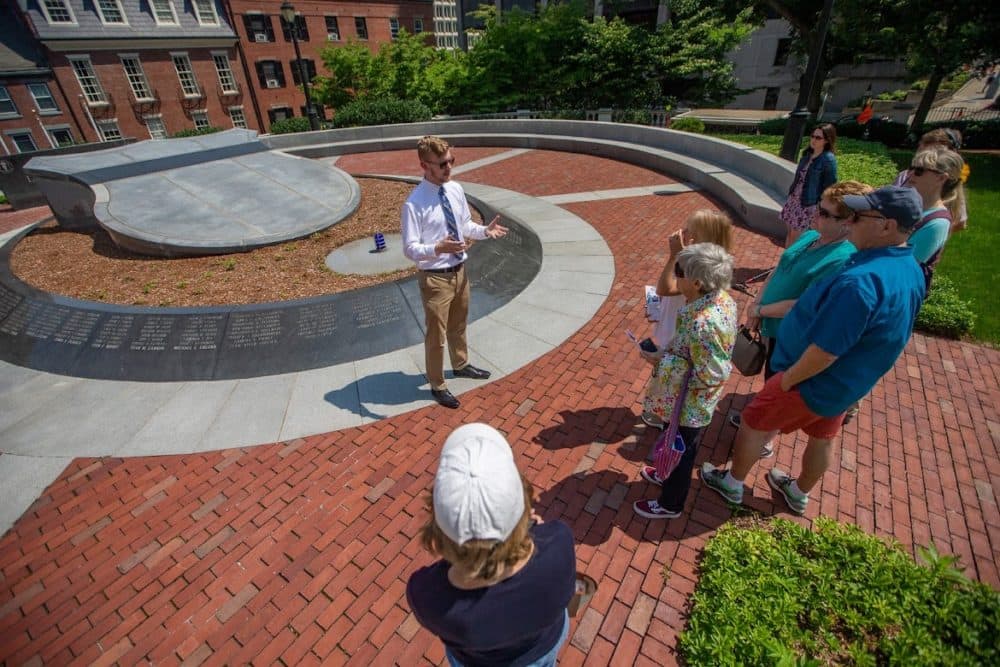
This segment aired on July 29, 2021.
